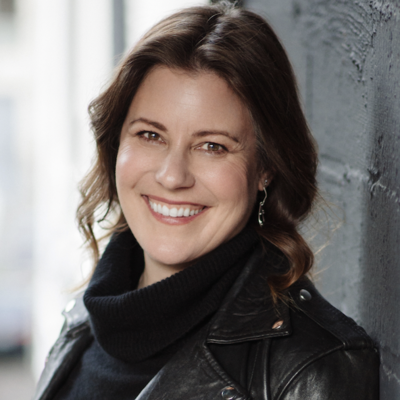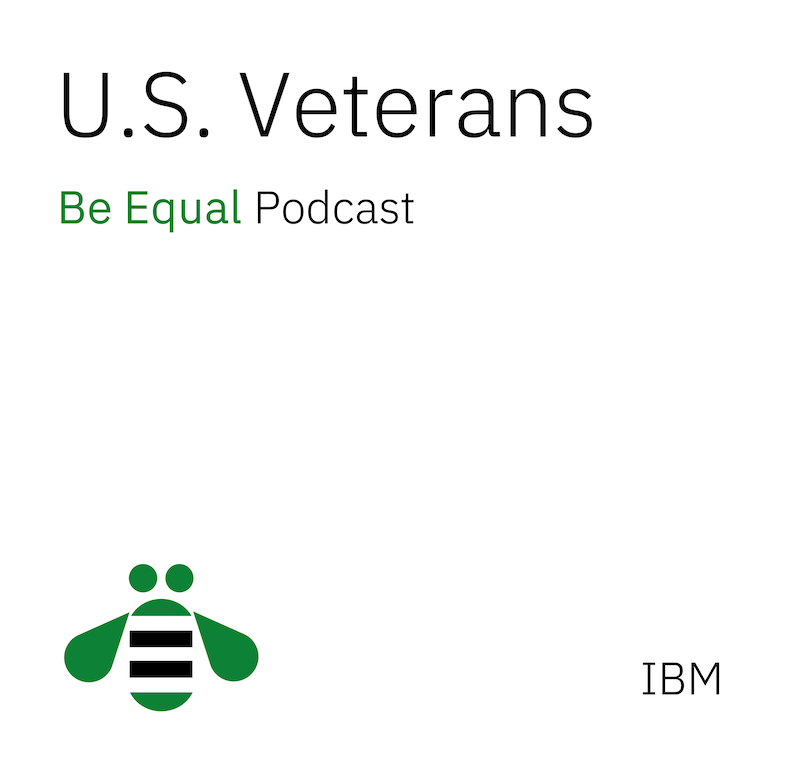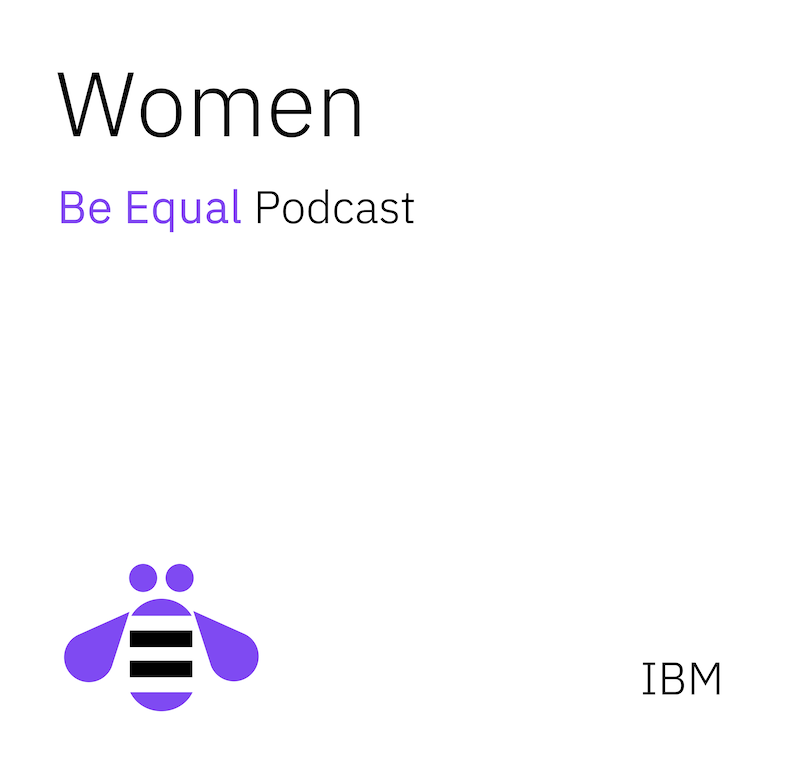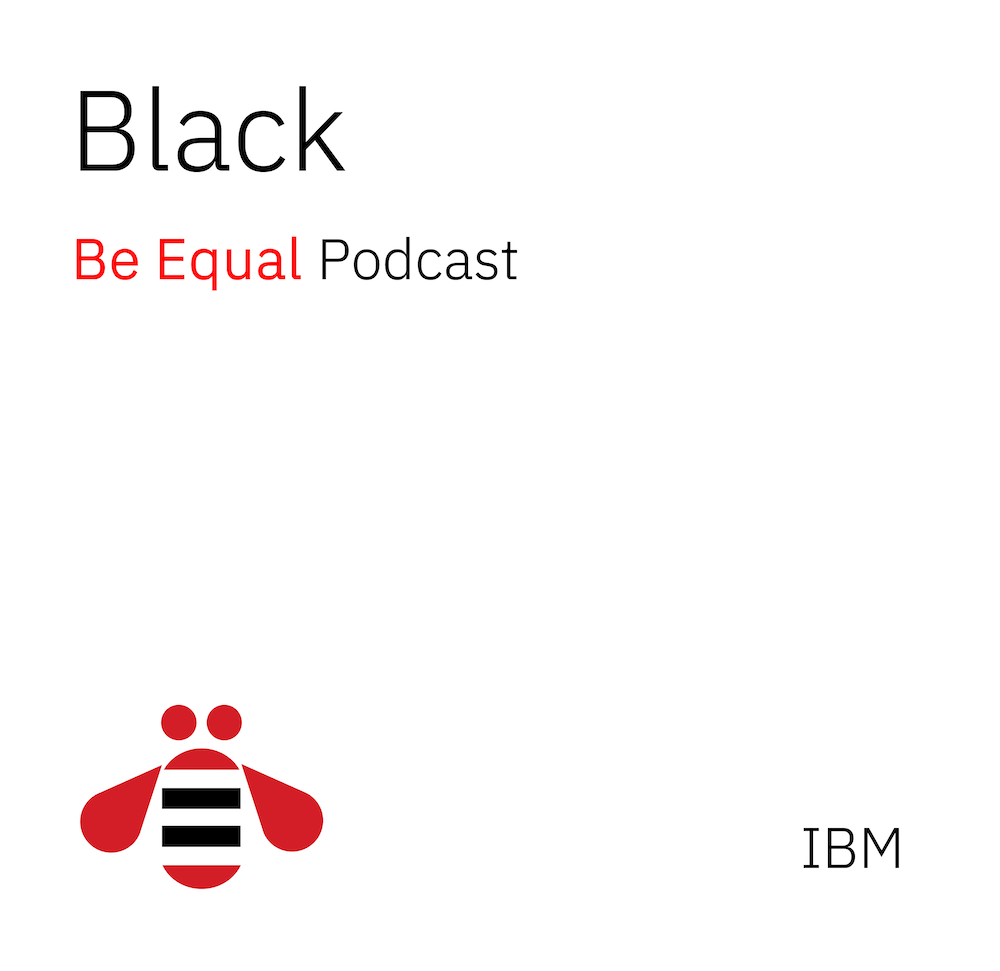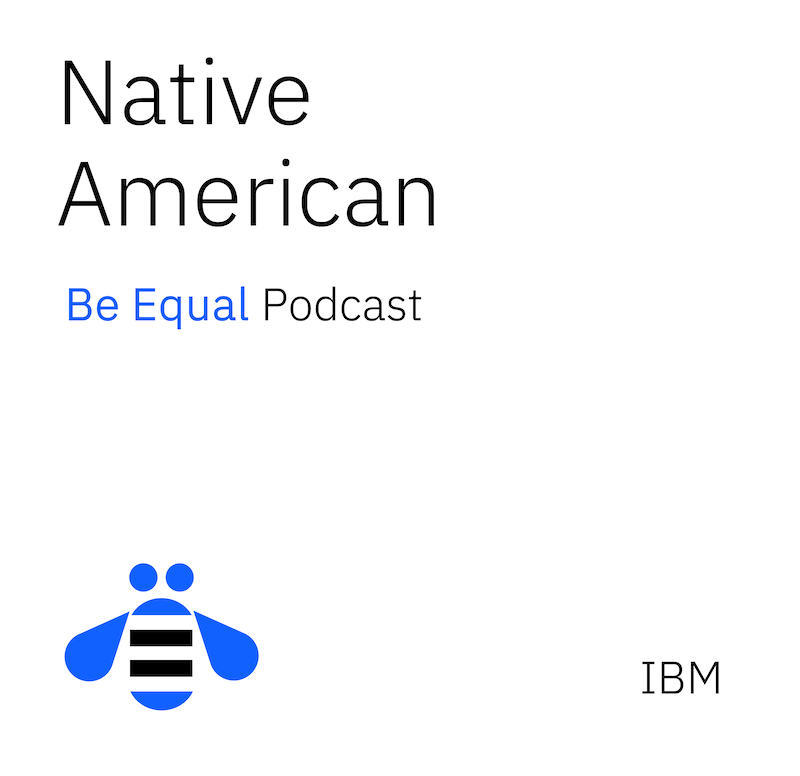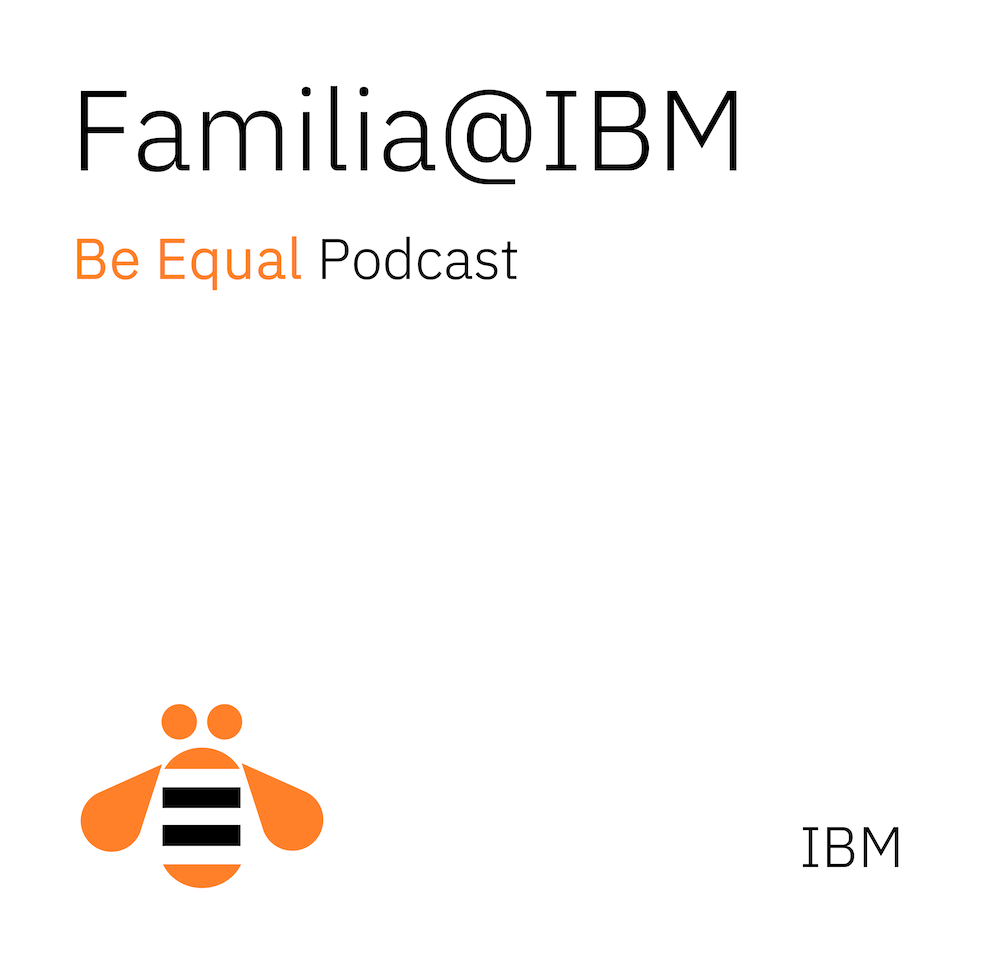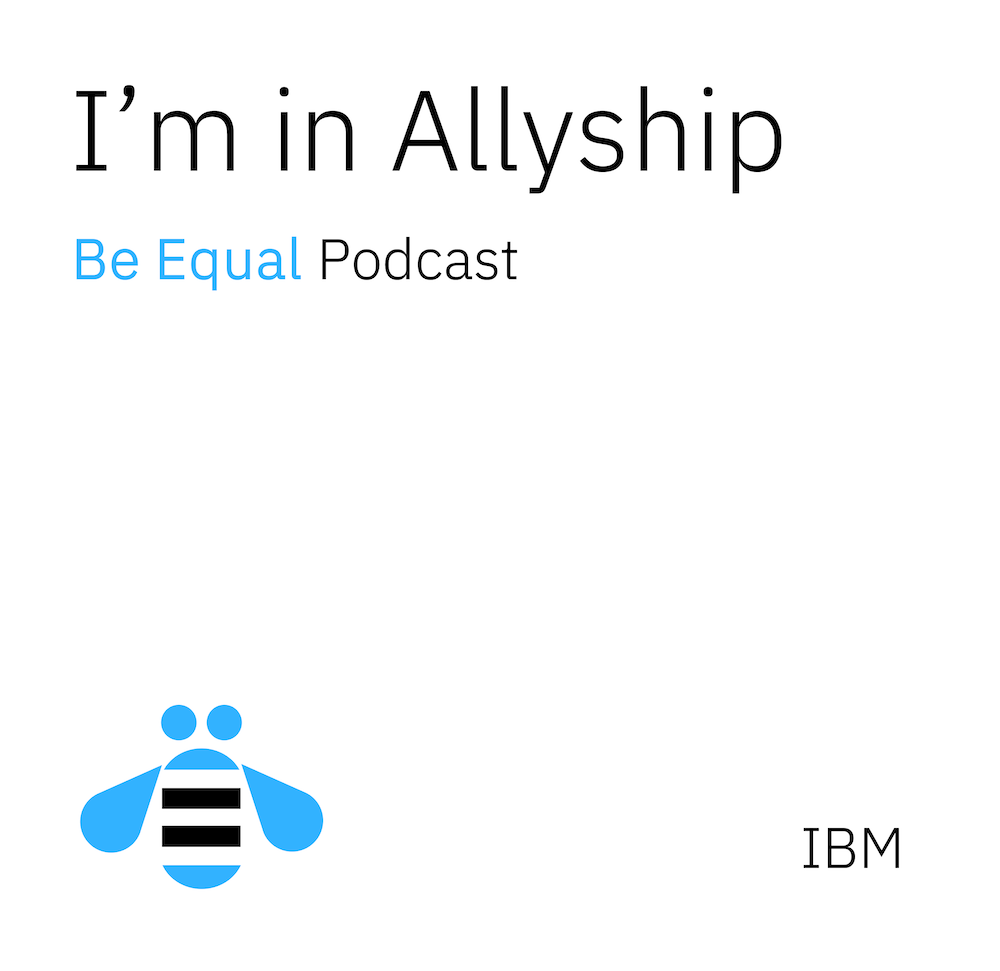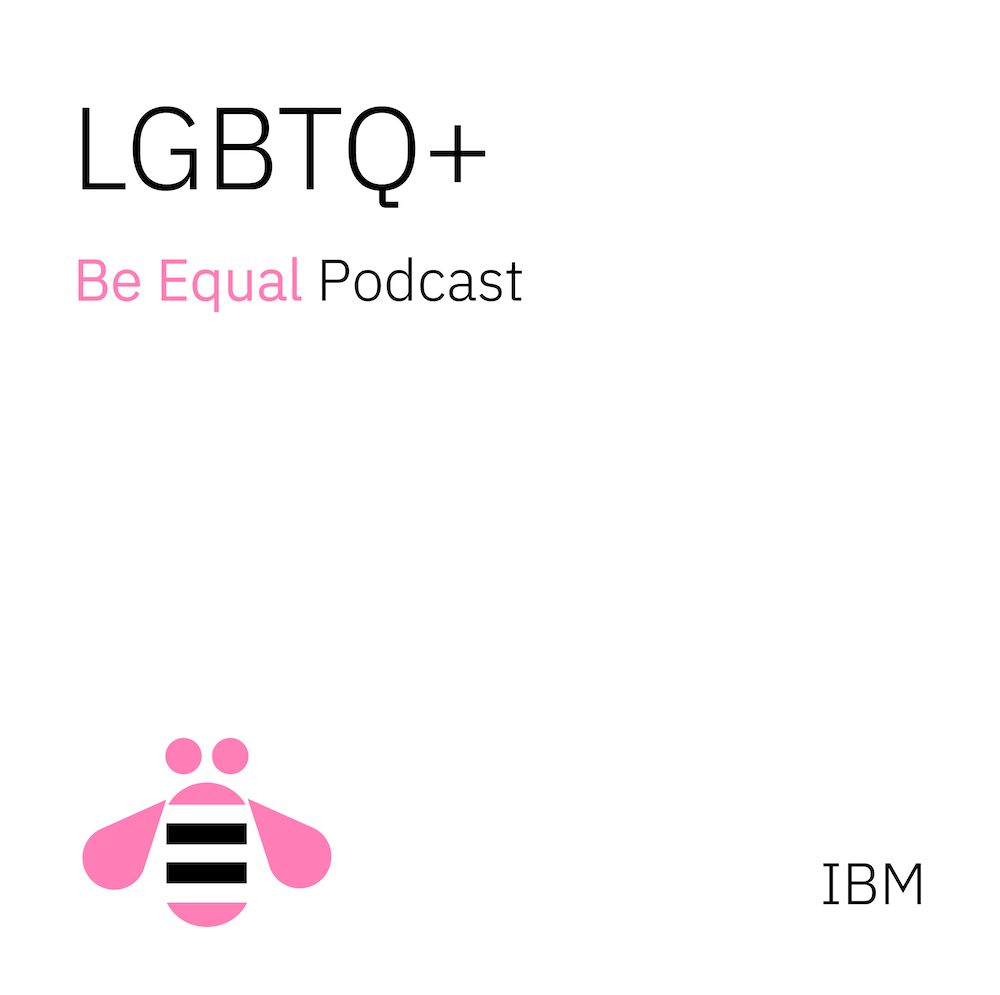U.S. Veterans - Leadership, Resilience and Service
- 0.5
- 1
- 1.25
- 1.5
- 1.75
- 2
JILL STEWART: Hello, and welcome to our IBM Be Equal podcast. I'm Jill Stewart, the director of Diversity and Inclusion at IBM. Thanks for joining our conversation around D&I to learn how we at IBM are continuously looking for ways to expand equality and allyship across the enterprise. We have eight D&I communities focused on making a difference for underrepresented groups. And here is an opportunity for you to hear directly from our IBMers. Every month we have a new episode, so enjoy.
JOY DETTORRE: So hello, and welcome to our Veterans Edition of the Be Equal Podcast, where IBMers will have the opportunity to be vocal, be powerful, be proud, and be heard. And, of course, share their stories of tenacity, grit, perseverance, and courage. Our podcast series explores seemingly simple issues that we all face, but we don't always talk about them out loud. And today's conversation is especially exciting. Because not only are we going to hear from two IBM veterans, but at the end of the conversation I will share my discussion with Shannon Huffman Polson, a woman of many firsts. Including one of the first women to fly Apache combat helicopters in the United States Army. And she will talk more about the importance of grit and resilience as she shares lessons from her books, North of Hope, and of course, The Grit Factor. I'm your host, Joy Dettore, and I am the global diversity, equity and inclusion leader at IBM. My pronouns are she and her. And I'm speaking to you live from South Florida, which is also known as the ancestral lands of the Miccosukee and Seminole Nations. So, our respected panelists today are Catherine Harkins, Dan Sturm, and of course Shannon Hoffman Polson. All right, so let's get started with a few introductions so our listeners become familiar with your name, your experience, and of course your voice. So Catherine, since you both are live with me today and we will share interactions with Shannon later, why don't we start with an introduction. Because I think everyone in the audience wants to get to know both of you just a little bit better. So how about if you share three things with us. First, the military branch where you served. Second, when I say veteran, tell me a few words that immediately come to your mind. And third, then go ahead and tell us about your role at IBM. Okay. So Catherine, why don't we get started with you.
Catherine Harkins: Thank you Joy for having me. I'm actually really thrilled to be here. I am an Air Force veteran in the sixth generation in my family to serve in the armed forces. And when I think about veterans, the first things that come to mind are leadership and dedication to serving others. I am proud to be celebrating five years of service at IBM and have the great pleasure of supporting the veterans community at IBM as the D&I leader.
JOY DETTORRE: Awesome leadership and the dedication to serving others. And as a person that gets to work with Catherine every day, I know that's true. So Dan, same question, same three categories.
DANIEL STURM: Sure. My name's Dan Sturm. I was in the United States Navy as an Naval officer for about six years. When I think of veterans, the three words that really jump out at me is mission, collaboration, and leadership at all levels as a veteran. And then finally my role at IBM, I'm a vice president of human resources for our technology lifecycle services organization. It sits in infrastructure and I'm very proud to be part of that organization.
JOY DETTORRE: Excellent. And Dan, I have known you for years, and I will tell you every time I talk to you, and this is probably most of the veterans in the IBM corporation, I do have a tendency to sit a little bit straighter. Yes sir. Mission for sure. Collaboration. I have seen you do that for years at IBM. And there's something that you said that I think is really powerful for all of our listeners. And it's not only leadership, but it's leadership at all levels. So when I think about leadership at all levels and showing up as somebody who maybe is not a manager or sits in an official position of leadership, it's a great reminder for all of us that leadership and the opportunity to serve does happen at every level. So thank you both. All right, now before we get to our first question, I would be negligent if I didn't stop for a moment and thank you both for your brave service. And a little shout-out to the memory of my father, because he would've been the one most disappointed if I didn't thank you for your service. He also served proudly in a branch that we've already heard mentioned earlier today, and that was the United States Air Force. So Catherine, since Veterans Day is around the corner, and at IBM, we don't just honor our veterans for a day or a week, it's more about 365 days of active engagement. Can you share more about this year's theme for veterans?
Catherine Harkins: Joy, thank you so much for asking me that. I'm really excited about Veterans Day at IBM for 2023. And our theme this year is leadership, resilience and service. And I think that we've already heard here today that those are true characteristics that veterans bring to all organizations and certainly here at IBM. We are very excited to have several signature events around volunteerism, programs for the veterans community, and active allyship for our allies here at IBM.
JOY DETTORRE: Catherine, I think you might have told me once before, that when it comes to service, that's a way of life for veterans. And at IBM, we know that there is a philanthropic arm to IBM that does a lot of volunteering in our local communities. Did I hear you right, that there might be information and data out there that talks about the veterans community having the highest number of service hours at IBM or did I just dream that or make it up?
Catherine Harkins: You did not dream that up. And I'm thrilled to say that our community has really anchored around service and volunteerism this year. Each one of our BRGs are supporting service, in-person service opportunities around Veterans Day. And many of them were already doing that all year long. We have a veterans BRG that has done six service opportunities already this year and have more planned for the month of November. So we are really excited. It's who we are, we're called the service. Everyone that is actively serving now, it's an all volunteer service organization when you serve in the military. And we continue that service far long after we take off our uniform.
JOY DETTORRE: Well, when I think about duty, honor, valor, service, I think this community understands the profound amount of respect I have for you. And by the way, this is a group. I always have a tendency to show up at your meetings unannounced, just because I'd like to be there and be associated with you. Now, Catherine also mentioned BRGs. For those of you that are listening, and you may be unfamiliar with the acronym BRGs, it stands for Business Resource Groups. And I will say that in your organization you might've heard them referred to as maybe affinity groups or employee groups or employee network groups. At IBM, we call them Business Resource Groups, intentionally because we know that their collaboration, their partnership and their commitment to the community and having an impact not only where they work but where they live and where they serve has a business impact on IBM. So Catherine, thank you for sharing that. Okay, Dan, Catherine mentioned these three words that the theme for this year's Veterans Year was leadership, resilience, and service. And one thing you and Catherine have previously shared with me, and for those of you that stick around for the entire podcast, you'll hear that Shannon also talks about this and that is the importance of helping our veterans transition. And that is transitioning from their military experience to civilian opportunities. Can you tell us about your military service and then your transition to IBM?
DANIEL STURM: Sure. My military service consisted of about six years. I was commissioned through the NROTC program when I graduated from Purdue University and immediately went to a Spruance-class destroyer in Charleston, South Carolina, where I was fortunate enough to have roles in operations, engineering and combat systems. So I got to really understand the technical aspects of using a ship in war fighting. And on top of that, we were able to secure a shore to, and I say we were, I'm talking my wife and I because she was my partner along the time with me, but we went up to Newport, Rhode Island, and while she's a physical therapist, I taught engineering to the officers in Newport, which was a great experience and I was able to get a master's degree up there as well. So I left the military and went to a chemical company, very, very well run East Coast Chemical Company and worked there for about six years. And that was my first transition from the military to private industry. And of course you have to get used to change, particularly around the delegations being much different. I remember as an engineer being able to as a 24, 25-year-old sign off on at the time a 1. 4 million gas turbine generator assembly for the ship in engineering. And that's not exactly how it is for a 24-year-old in private industry these days. So lots of differences there. But my transition to IBM was in 1999, so I've been at IBM coming up on 24 years, which has been a great experience for me. And that opportunity was very, very eyeopening for me, just from the standpoint of I tended to bring with me a very strong emphasis on doing whatever I needed to do to get the mission done. And I found that coming into IBM, you do need to collaborate. You do need to understand all the different moving parts, and really work the system, so to speak, and broker the services to get the mission done similar to what you did in the military. So it depends on where you go initially, but certainly from the transition into IBM, it was one that just required me to adjust my approach to understanding what was available with an IBM to get the job done.
JOY DETTORRE: So Dan, there was so much that you said in that answer, and I'm going to pull out a couple of really important threads. But one thing that I know I heard you say was you talked about your transition from the military to the private industry, and we know that was with a different company, not us yet. But you mentioned having a degree in engineering, and that's exactly the role that you played in the military. But one transition you never talked about is you're a vice president in human resources. So there absolutely had to be another transition. It has to be a second podcast because there is a career transition that you've had as well from engineering into hr and I'm sure people will tune into that podcast. So another transition.
DANIEL STURM: Well, one thing I'll point out on that and which is I think another attribute of the military is my undergrad was really organizational leadership. So what the Navy taught me through NROTC, and what the military taught me and my training really gave me that subspecialty code into mechanical engineering. But truth be told, and it is topic for another podcast, the transition to HR is a whole different story, which I am happy to chat about at a later time.
JOY DETTORRE: Awesome. And Dan, a couple of things. First of all, you mentioned NROTC. I know you're from the Navy. Does that mean Naval ROTC?
DANIEL STURM: That's correct. There's Navy, there's Air Force, there's Army, there's different ROTC units, and if you're a Marine, you're under the Navy program as well.
JOY DETTORRE: Okay. And I think when you graduate through ROTC, did you graduate as an officer?
DANIEL STURM: Yeah, I was commissioned right after graduation. So that was part and parcel to the commissioning source.
JOY DETTORRE: That must be why I want to salute every time I see you, Dan. So, it's the officer in you. All right, so Catherine back over to you. I'm going to put a little bit of a different spin on the same question that I gave to Dan. At the beginning of November IBM is launching a veterans hiring initiative called Boots to Blue. So first part of the question, what is Boots to Blue?
Catherine Harkins: I'm thrilled to be talking about Boots to Blue. As you know, IBM values the military experience, and truly understands the innate skills and attributes veterans offer and how they are critical to the mission of IBM. To continue the legacy of inclusive hiring and bringing more veterans to IBM Boots to Blue will do just that.
JOY DETTORRE: Do you want to tell all of our listeners about an award IBM has received in the past about being military friendly?
Catherine Harkins: Thank you, Joy. I am excited to share that for more than a decade, IBM has been awarded the Military Friendly Gold Designation by Victory Media, which really celebrates the way that we hire, promote and support veterans at IBM.
JOY DETTORRE: Awesome. And I will say one thing that you didn't mention, but I know because we work so closely together, that Boots to blue isn't something that just quickly happened. Boots to Blue is something that you and the veterans at IBM have been driving, talking about and encouraging for over 18 months. So it's so excited to see Boots to Blue be released. So when we talk about tenacity, resilience, and follow through, we thank you for your tireless commitment to make that a reality at IBM. So thank you Catherine.
Catherine Harkins: Thank you, Joy.
JOY DETTORRE: Now remember I said this was a two part question. So here comes part two. Since Dan already shared his military transition experience. Let's say I'm a veteran and they happen to be listening to today's podcast, and I know that I have the desirable skills and the qualities that IBM is looking for. But I want to know how IBM is going to support my transition into the workplace. What can I expect?
Catherine Harkins: Joy, we do so many things and I'm really proud of the work that our Veterans Executive Council is focused on, including our strategic priorities of recruitment, mentorship, comradery, and advancement for the veterans community. This is really unique. A lot of companies don't have an executive council focused on their diverse communities and we're really excited that we have. That this all volunteer team organizes programs and offerings to support the veterans community. Like I said, we have mentorship. So a veteran can select a mentor from the veteran's community that's already been through what they're going through and they can offer insight and support in maybe a way that somebody that hasn't been through that experience can provide. We also offer many programs around comradery. That's one of the things that we continue to hear from our veterans when they leave military service and join a civilian company. That comradery is not quite the same. We work really, really hard to provide that. And then we have programs to help veterans advance at IBM.
JOY DETTORRE: Awesome. Dan, so the last live question is for you. In your experience, why is IBM great place for veterans?
DANIEL STURM: Oh boy. I don't know where to start, but I'll rattle off some fairly significant points. One is it's a large and complex enough organization, technology driven, that you don't have to leave the company whether you're going down the road of a technology career or a line management career or a specialization type career. There's always room and there's specializations, even in the HR function, to do things that other companies throw at people, just a collateral duty. And you never really get deep into that particular subject area. And you can really find anything you want with an IBM to move to. And the corollary to that is I remember in Newport, with the other officers when we were teaching and having lunch one day and saying, a number of us were all getting out of the service about the same time. I said, we're never going to find a place where you can get a set of orders every 24 or 30 months to go onto a new job in private industry. And it was a little bit that way when I first got out. But when I came to IBM, I remember interviewing and asking the VP of HR and software group at the time and he said, "That's an interesting question." He said, "I bet you don't think we're agile enough to move people around that quickly." And I said, "Well, I'm just curious." I think you'll find that people move job to job anywhere on average between 18 and 24 months. And you're allowed to move about every 12 months if you really, really wanted to. But the net of it is people generally stay in their role year and a half, two years, three years. It's really up to the individual and the performance they bring to bear. But that's very true. And I've seen it my whole career here. I think I've had nine jobs in 23 years. So that's just indicative of that. It's a diverse culture with an inclusive environment where you really can come to work as you are, and work with others that are as they are. So you don't have to put on airs or act a particular way to be successful here. I think the BRGs provide, and that's the Business Resource Groups, but they provide a great construct for you to be the best in both worlds. Both the private sector that you're transitioning to and your linkage back to a great support organization, which are your fellow brothers and sisters from the military that are here with us as well. So that provides a huge opportunity along with the other BRGs. And then finally, I think the mission's important. I talk about mission. For me, IBM's mission was right up the alley of what I really was interested in. And I was fortunate enough to work in IBM research as the HR leader there for three years. And it really gets back to what we used to espouse there. It's very, very true. It's taking science and technology and refining the natural aspects and attributes of that for the betterment of mankind. That's the basis of what the corporation's done for over a 100 years. And from that we've been able to monetize and be successful in that way. But it's really trying to improve life for mankind is what we are into business of doing. So I think it's the mission, the products and the services to be associated with that. So let's create.
JOY DETTORRE: That was awesome Dan. And I love how you went full circle. You started with mission and then you ended with mission. You also talked about being part of a large and complex technology driven organization that has a diverse and inclusive culture. And well, for those of us in diversity, equity, and inclusion, we appreciate that sentiment. And now I invite you to continue listening to a portion of my conversation with Shannon Huffman Polson, United States Army veteran, keynote speaker, author, founder, and CEO of The Grit Institute. I know you'll be inspired by the discussion. So for people who are listening to the podcast, I wanted to let you know that everything that you hear that oozes out of Shannon is so authentic and so real. She doesn't know it yet, but behind your back I call her my best friend.
Shannon Huffman Polson: Thank you Joy, and thanks so much for having me.
JOY DETTORRE: You have been a trailblazer your entire career, and notably did this with very little mentorship and having no visible role model to follow or somebody that maybe looked like you. With everything that you have endured in your life and in your career, you have faced many obstacles that have prevented or stepped in the middle of your success. We'd love for you to share with our audience in those moments when you have faced an obstacle that seems insurmountable, how did you manage that, and what advice do you have for someone facing obstacles where they feel they don't have a solution?
Shannon Huffman Polson: It's such an important question, Joy. And I will say that I was very fortunate to grow up with a father who was both supportive and also pushed me pretty hard to be the best that I could be. And there's a story that I tell in my first book, North of Hope, which is about playing soccer when I was about 10 years old, and I was a defense or fullback, just on a boys club or girls club team. And there was another girl on the opposite team that we often played named Megan, who would come charging down the field towards us. And she came with such power and such force that we would just park like the Red Sea. And she would score on goal every single time. And I remember my dad once coming up to me after the game and not unkindly and very supporting, always put his arm around me and he said, "Shannon, why don't you run back at her?" And I looked at her, it was completely crazy. There's nobody that was going to go...
JOY DETTORRE: Nobody runs at that girl, dad, ever.
Shannon Huffman Polson: Right? I mean, who does that? But the next game we played against her team and she came charging down my side of the field, and I went charging back at her until we collided midfield and lay on the ground, and the soccer parents were silent, something that never happens. And then we got up and continued to play and she never charged my side of the field again. I think of that story, I mean, again, just girls club soccer at Anchorage, Alaska, as a formative moment, as other formative moments were in my life with a dad that pushed me hard and said, "Hey, why not do that thing that you might be scared to do?" And so at the end of the day, I would say that there's two things. The first thing is to train yourself to have the mindset that you're going to go forward anyway. You may be afraid, you may be worried, you may be stressed, you may feel any kind of emotion, but you're going to go ahead and go forward anyway. So you train yourself to do that. And then the second part is important as well, because going forward might seem completely impossible. You take one step. And that seems so simple. But if you take one step, if you take one action, and even if it's just one action each day towards what that insurmountable thing is, you will start to build momentum and you will start to build confidence. And I think both of those things are seemingly small, but both of those things will allow you to move mountains.
JOY DETTORRE: Wow. And I love the building confidence, doing it afraid. I think that's such an important lesson for all of us, no matter where we are in our careers. I also noticed that because you happen to have your military experience in the army, I heard a little bit of the tagline come out. Did I hear, "Be the best that you can be?"
Shannon Huffman Polson: Oh, gosh. Did I say that? I might have. Be all you can be, right? No, but I do think that you do want to say, and I am trying to work... I have two children who are 10 and 13, and so I work with kids from 10 to a 100. I sort of like to think right now to include myself. And it's very easy to get in your own way, right? At any age. At 10 years old, at 50 years old, at a 100 years old. And in each of those times, in each of those places to remind yourself that you're there to do the best that you can do right now, and you're there to contribute the best that you can right now. And I think that contribution piece is also really important, because it helps you to realize that you're there for something bigger than yourself. It's not just about you and what it is that you want. You're there to make a difference in the world. And I really like to think that that's what defines a leader. Is somebody who's there to really push themselves to be exceptional and to make a difference in the world. So you're there to contribute the best that you can right now.
JOY DETTORRE: And talk about making a difference in the world. Shannon, and I really appreciate that you gave such fond accolades of your father. I do have to ask this question, and it was not when it was planned. After you went charging towards that girl on the field and then you both ended flat out. I just want to know, did your dad stand up and go, where'd you ever get that idea? That was crazy.
Shannon Huffman Polson: No, my dad was all for charging ahead whatever the obstacles. So there were plenty of stories I could tell about him as well. I think he probably just said good job. I don't actually remember, but I do remember that she never came my way again. And that was life lesson on it's own.
JOY DETTORRE: A life lesson from a father to his daughter. That's beautiful. And so I do have another question for you. So here at IBM, we know that veterans are critical to supporting what we'll call for this podcast, the mission of IBMers. And you work with a lot of civilian based companies delivering training on leadership and culture and have the opportunity of meeting both veterans and non-veterans. We love to hear how the veteran experience and grit has prepared those veterans for civilian roles. And in your experience, what traits do veterans innately possess that supports a company like IBM?
Shannon Huffman Polson: Joy, this is a really important question, and it's important for a couple of reasons. The first is there are so many traits that veterans bring to anything that they do out of uniform. The reality is that we serve and veterans know that they are serving, whether they're wearing a uniform or whether they're not wearing the uniform. So the first thing is really that sense of service and that sense of contribution, that desire to truly contribute in a meaningful way. That's an incredible thing that most veterans will bring to the companies that are lucky enough to hire them afterwards. But the other thing, I mean, there's actually, there's a whole litany that I am really proud to say that I recognize, I see, I hear about in these veterans that are transitioning to companies and working at all levels within companies, across industries. And that will include things like creativity, right? Finding creative solutions to really challenging problems. Along the same lines of that is they're willing to learn. They're looking for opportunities to learn. They're looking for opportunities to grow. And in the military, we often have to make a mission without all of the resources that are necessary. And so veterans are pretty good at once they understand what they're playing with, they find a way to get things done. Many, many of the veterans that are being hired into companies also have had tremendous experience in leadership. And that's something I think civilians don't always understand exactly. Because when you come out of the military, you have been put into and expected to lead at very, very young ages, sometimes in combat, oftentimes with incredibly complicated logistics and other requirements that there really are far in excess of what most people at any age will ever be managing. And so they come with leadership skills, and the skills to take care of people, to encourage people to develop people. And I think that's an important thing that veterans understand they come with. But sometimes civilian employers may not have that same understanding of the background that these applicants are coming with.
JOY DETTORRE: Well, and I will just say, I love how you said, "We want to elevate the conversation." And for everybody who's listening, I think you just got a free masterclass on how important it is to bring a veteran into your organization. And I hope the grit factor flies off the shelves. So let me just try to summarize. Also, there was something that you said that I think was so profound, and that was building the confidence of our service members and companies that are lucky enough to hire a veteran. So let me just say this, IBM, we're looking for you veterans. And earlier today at the top of this podcast, you heard Catherine talk about Boots to Blue. And she has educated me a number of times that no matter what branch of service you happen to serve in, at one point you happen to wear boots, whether those are jump boots or combat boots, and whatever boots you wore, no matter what size or what level you were in the military, you have a home at IBM. We want you and we need you to think about IBM. And if you would like to listen to the full conversation I had with Shannon, please look for the links below in the resources or description section of your podcast platform. And now as we get ready to close today's podcast, I wanted to say a special thank you to Catherine, Dan and Shannon for your courageous service. And a special thank you to the Army, Navy, and Air Force for inspiring these great leaders. And to the family members who supported these proud veterans. Because as individuals, we know you never serve alone. Entire families have served at the United States Armed forces. So on behalf of all of our listeners, I wanted to say thank you. Thank you for your sense of duty, thank you for your life commitment to service, and thank you for your sacrifice.
DESCRIPTION
Every year, on November 11th, Veterans Day is observed to honor those who have served in the United States Armed Forces. In this episode, Joy Dettorre engages in a conversation with IBMers and U.S. veterans, Catherine Harkins and Daniel Sturm. They share their perspectives on the 2023 theme for Veterans Day at IBM: Leadership, Resilience, and Service, as well as their experiences in the military and their transitions to the workplace.
During this conversation, you'll also have the opportunity to hear from Shannon Huffman Polson, a trailblazing figure, U.S. veteran, author of 'The Grit Factor' and founder of 'The Grit Institute'.
Listen to the full conversation with Shannon Huffman Polson here.
Check out 'The Grit Factor' podcast series hosted by Shannon Huffman Polson.
Today's Host
Jill Stewart
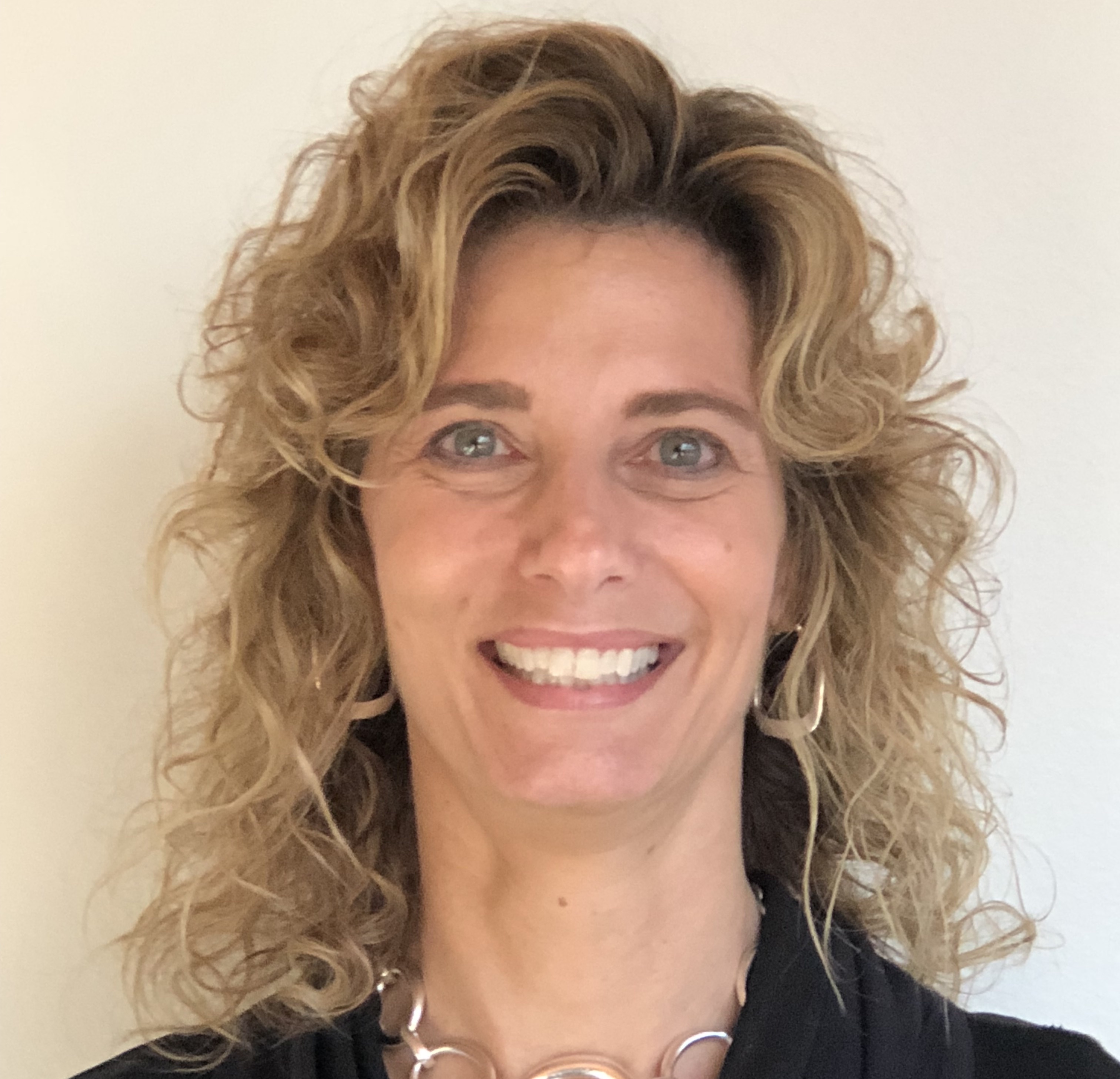
Joy Dettorre
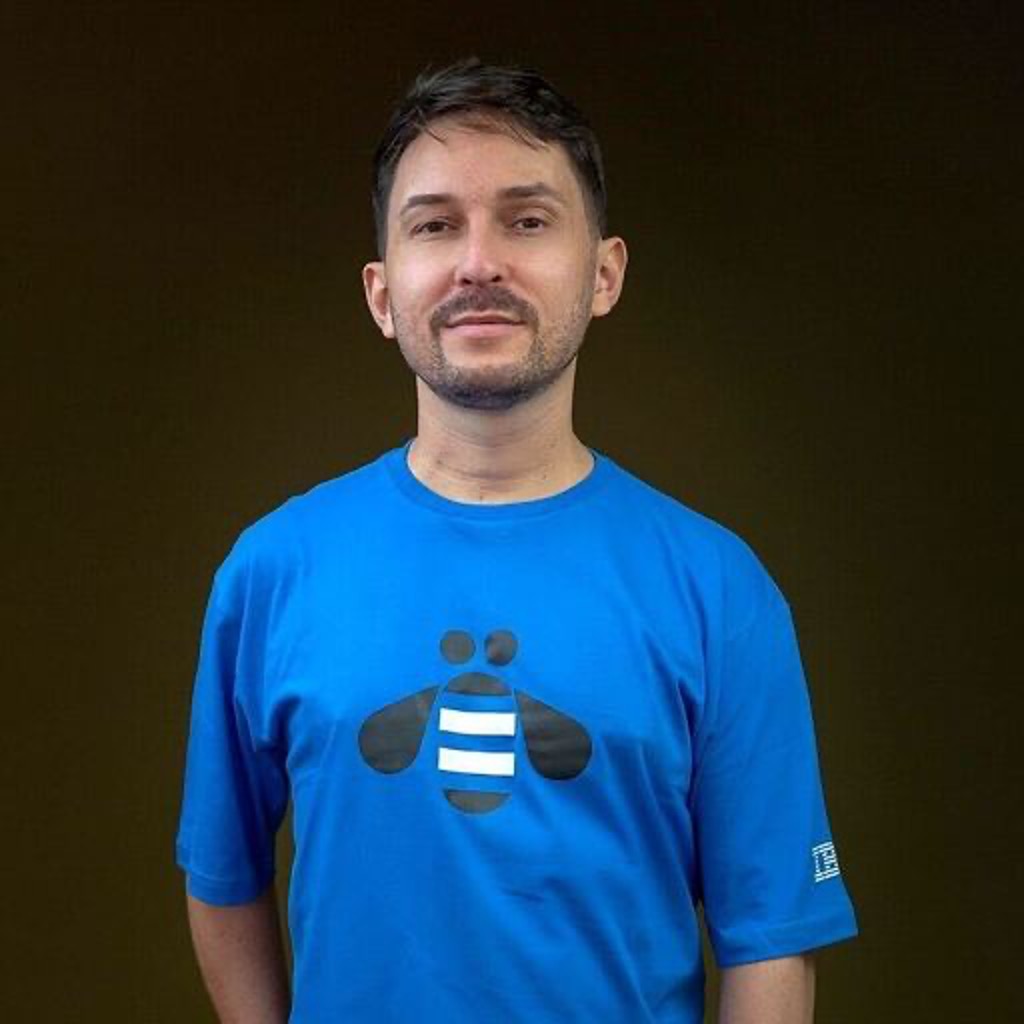
Luiz Lopes
Today's Guests
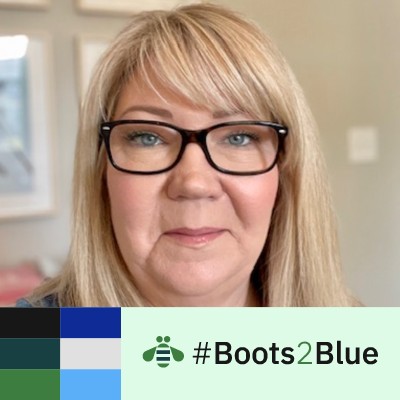
Catherine Harkins
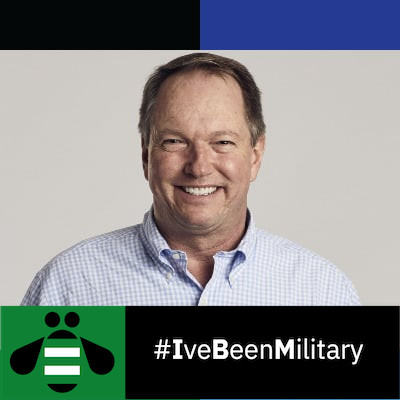
Daniel Sturm
